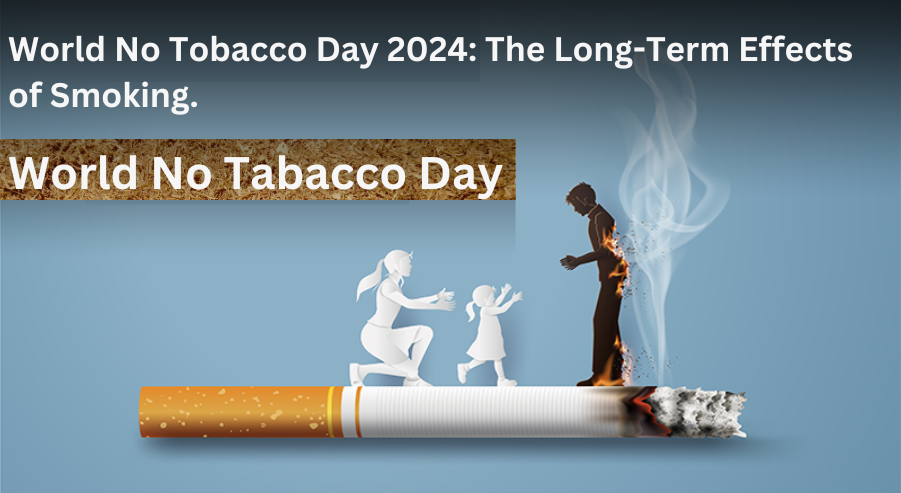World No Tobacco Day, observed annually on May 31, is a global movement coordinated by the World Health Organization (WHO) to promote awareness about the negative consequences of tobacco use and advocate for effective tobacco-reduction legislation. This year’s topic, “Protecting Children from Tobacco Industry Interference,” emphasizes the necessity of sheltering youth from the tobacco industry’s manipulative tactics.
Smoking remains a serious public health issue, causing millions of deaths worldwide each year and putting a considerable strain on healthcare systems. The long-term consequences of smoking are severe and diverse, impacting almost every organ in the body. Here are ten major long-term health consequences of smoking:
1. Lung Cancer: Carcinogens found in tobacco smoke alter lung cells, which in turn causes cancer. Coughing, chest pain, and weight loss are among the symptoms that significantly shorten life expectancy.
2. Chronic Obstructive Pulmonary Disease (COPD)**: Smoking destroys the airways and lung tissue, causing chronic bronchitis and emphysema. This causes prolonged coughing, breathing difficulties, and recurrent respiratory infections.
3. Heart Disease: Tobacco smoke contains chemicals that promote atherosclerosis, which reduces blood flow and oxygen to the heart. This heightens the risk of heart attacks, angina, and heart failure.
4. Stroke: Smoking raises blood pressure and causes clotting, which can reduce blood flow to the brain. This can result in brain damage, paralysis, speech problems, cognitive decline, and death.
5. Peripheral Artery Disease (PAD): Nicotine harms arteries in the limbs, limiting blood flow. This causes discomfort and numbness and raises the risk of infection, which can lead to amputations.
6. Respiratory diseases: Smoking weakens the immune system and airways, making diseases like pneumonia and bronchitis more likely.
7. Reduced Fertility: Tobacco toxins disrupt reproductive organs and hormone levels, hindering conception and increasing the risk of miscarriage.
8. Type 2 Diabetes: Smoking causes insulin resistance, which increases the risk of type 2 diabetes and its consequences, including neuropathy and renal damage.
9. Weakened immunological system: Smoking reduces immunological function, making you more susceptible to illnesses and taking longer to recover.
10. Gum Disease and Tooth Loss: Smoking impairs blood flow to the gums and encourages bacterial development, resulting in periodontitis, tooth loss, and poor oral health.
The detrimental effects extend beyond smokers. Secondhand smoke poses serious harm, especially to youngsters. Secondhand smoking affects one out of every four people in India, with children aged 3 to 11 being the most affected.
To safeguard young people, WHO supports smoke-free legislation and smoking cessation. The tobacco business aggressively targets kids with enticing tastes and marketing methods. The proliferation of e-cigarettes, which contain addictive nicotine, poses new threats to brain development and overall health.
On World No Tobacco Day, individuals and communities are encouraged to take action to keep young people tobacco-free and to help those who are attempting to quit. By raising awareness and pushing health legislation, we may lessen tobacco’s harmful influence on our worldwide community.




